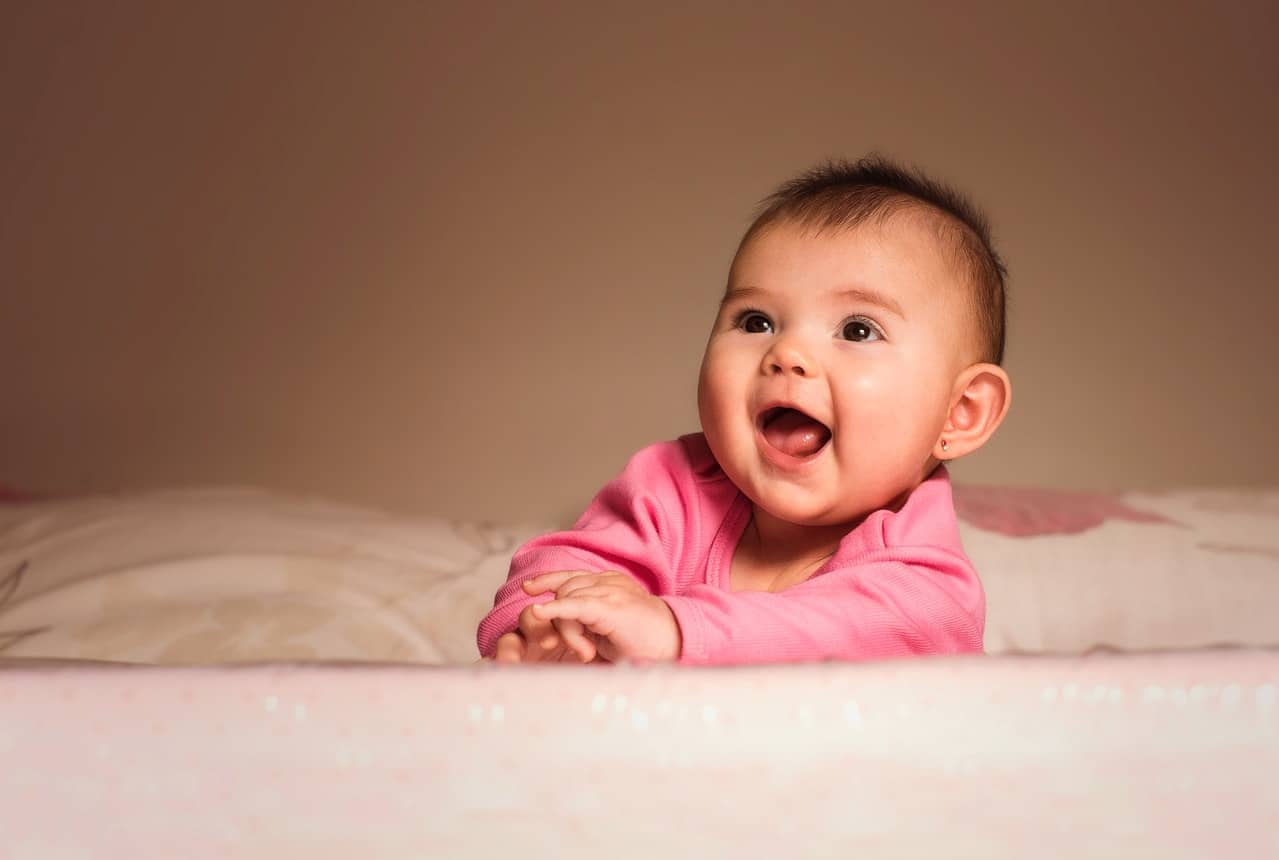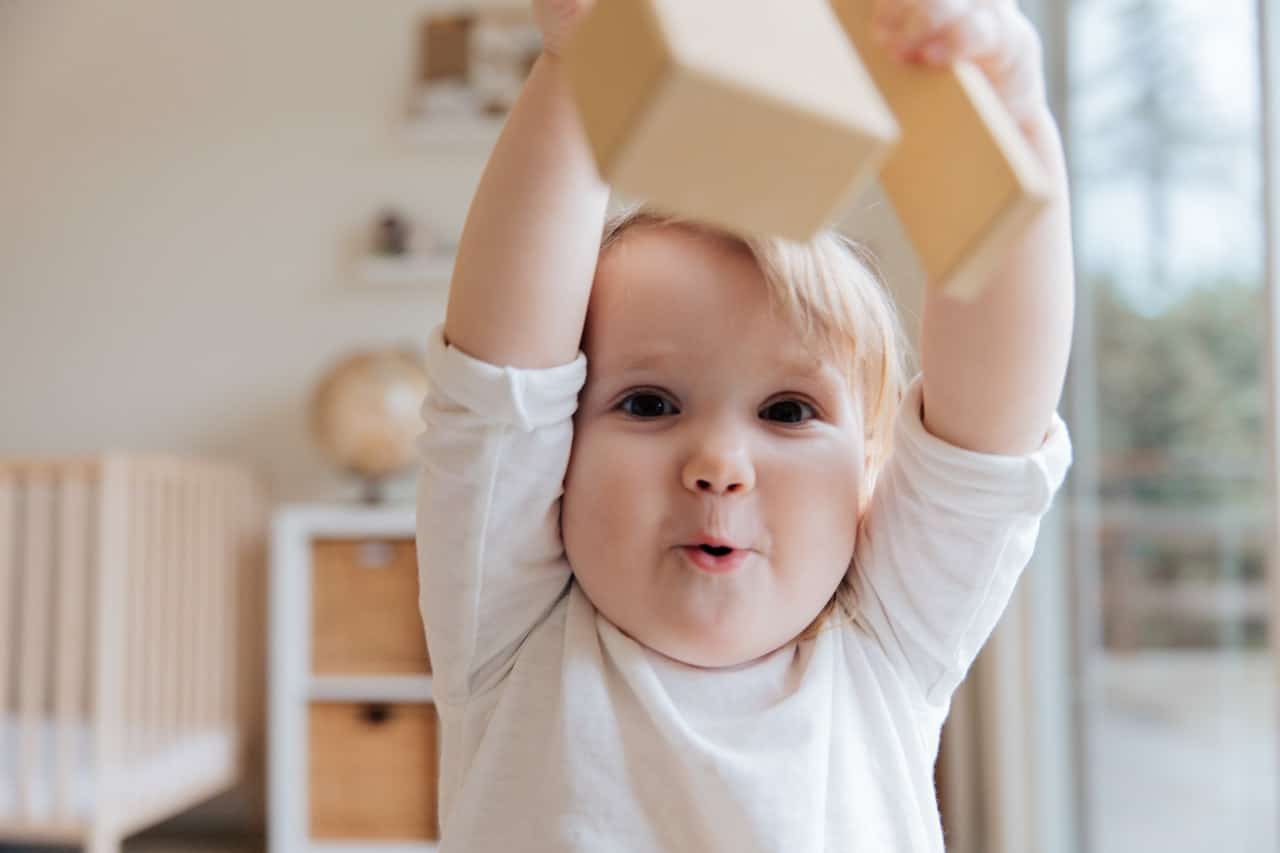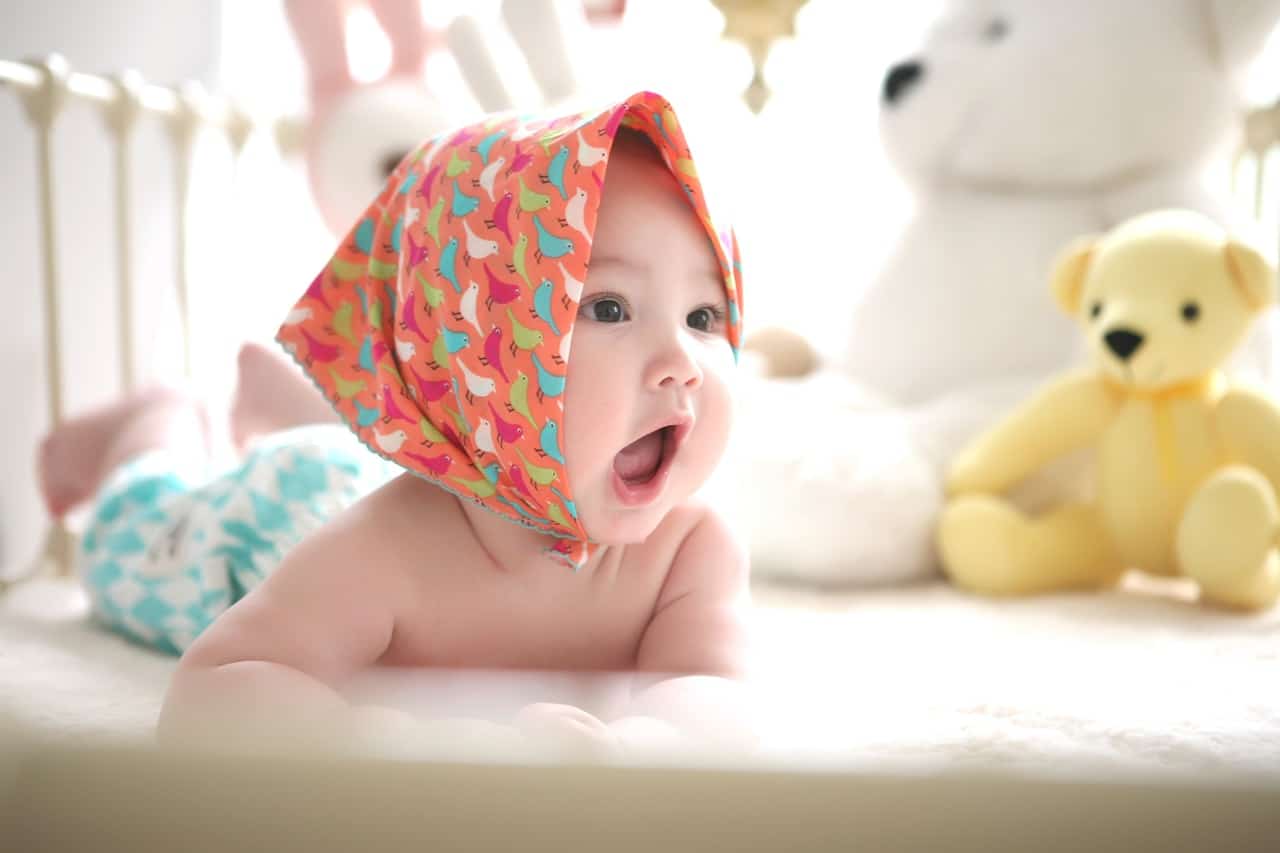
All parents expect and celebrate with emotion the first babble and words of their little ones. It is, without a doubt, one of the most important and exciting events in its evolution. A very common question that arises among new parents is, when do babies start to babble. Keep in mind that the development of speech in children hides a lot behind and that for this learning you must stimulate the baby.
The first babble of your little ones are a big step for the development of their language. Since, they are a means of training so that when he is older he can pronounce his first words.
How can my baby communicate?

From the birth of our little ones, they communicate with the rest of the world through gestures and sounds. An example of this is when they cry to tell us that they want something or feel upset.
At birth, babies' brains are in constant development. When he is already able to learn sounds and language, it is when the little one can begin to use his first words.
When do babies start to communicate?

The first phase of language learning by babies begins by learning different sounds that they rehearse through babbling.. They reach a point where they understand that by using those sounds they can communicate with the people around them.
As we always tell you, each baby has a learning rhythm and you must always respect it. In other words, we must not put pressure on him, overwhelm him or alert us because the little one seems a little distracted when communicating. To help him in his language, it is convenient that both parents and relatives lend him a hand.
It is essential that the little ones gradually develop their senses, one of the most important is the ear. This is because they must listen to the different sounds and words that are reproduced in their environment before proceeding to memorize and repeat them.
Another of the senses of great importance is that of sight, it is essential that the child sees the people and objects with which we speak or to whom we address, with this he will keep the shape, color, sounds, etc.
When do babies start to babble?

Since your baby is in the womb, he is able to detect different sounds that occur in the outside world. At the time he is born, he is able to recognize the voice of his parents, as well as his smell. These aspects help them start their communication process, they first do it by crying.
The first weeks of your baby's life, he will communicate mainly with crying, although as time progresses he will begin to understand how this communication helps him express his needs.
From the crying to the babbling phase, there is a primordial learning. The crying will begin to transform and your little one will know how to differentiate between one and the other. Depending on both the situation and the baby, babbling can occur and this is a joy for parents.
When we enter the second or third month of the baby's life, he will begin to produce sounds in response to signs of love by your family or others. In this phase, he is able to do something else with his mouth, beyond sucking or drooling. He will be able to snort, roll up his little tongue and even make sounds that he finds funny. In order for your little one to begin to babble or speak fluently, they must have fully developed organs involved in speech.
About three months of life, babbling becomes a much more constant and sonorous way of communication. The little one, little by little, is discovering his ability to reproduce different sounds. Once they reach six months, the babbling is much stronger and they will be able to pronounce monosyllabic sounds even without any meaning. It is important that the little one listens to his own sounds in order to motivate himself and repeat them again.
When they are six months old, the first coots begin to appear and they experiment with new vocalizations. They are able to repeat sounds like ma-pa-ta. The little ones try to imitate what they hear and the parents are in charge of replacing the babble with sounds similar to words that the baby is trying to repeat.
Remember, that little ones learn and develop speech through imitation and intuition. If the parents or people around the little one make sounds similar to their babble, they will be able to learn the sounds they can make more quickly. They will associate the sound and the word to a person or object and will begin to repeat them to communicate.
It is important that you leave them their space and time so that they can develop and learn, everything comes.